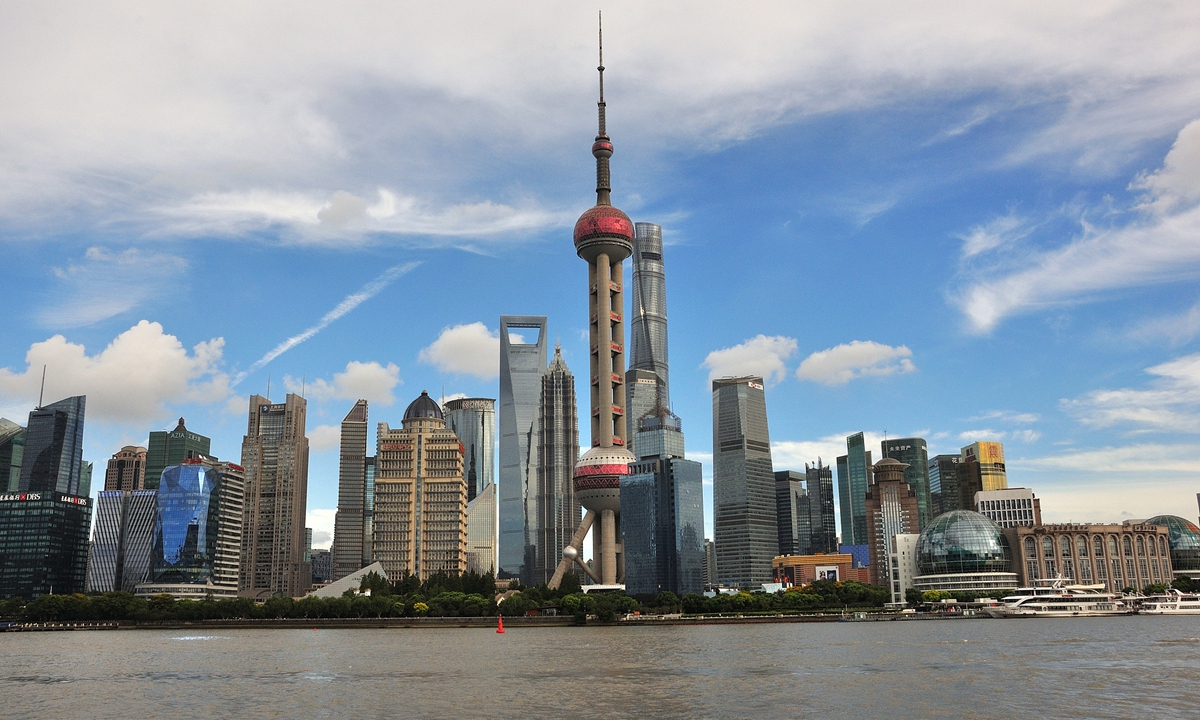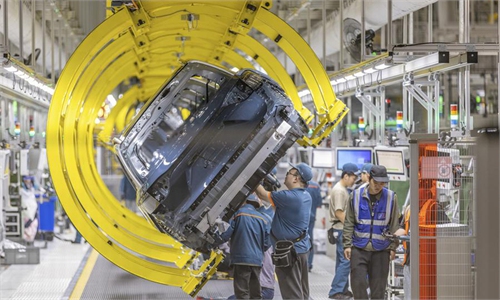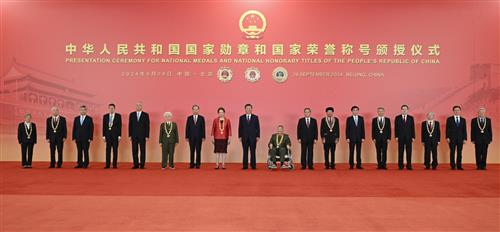
Photo: CFP
Editor's Note:
For many foreigners, China may remain a mysterious land. However, for some China hands, the real China is credible, appealing and respectable. Their research and observations provide authentic reflections of China's transformation, mirroring the country's achievements and attractiveness. On October 1 of this year, the People's Republic of China (PRC) celebrated the 75th anniversary of its founding. The Global Times launches a series titled "China Hands: My China Voyages" to share the connections, stories and insights of influential scholars and analysts who study China, narrating the changes and accomplishments they witness in China, and presenting a multifaceted view of the country.
In the fifth article of the series, Erik Solheim (Solheim), former under-secretary-general of the United Nations and former executive director of the UN Environment Programme, shared his stories with Global Times (GT) reporter Li Aixin.
GT: What do you think is China's biggest attraction?
Solheim: The biggest attraction for me is the sheer scale and speed of China's transformation. When the People's Republic of China was established, life expectancy was around 35 years, and very few could read and write. The country was devastated by civil war, Japanese occupation, and various other negative forces. Today, China is a thriving, green, and prosperous nation, ranking as one of the largest economies and most influential countries in the world. This remarkable transformation has occurred in a relatively short time.
I've witnessed this change firsthand, observing how people's lives have improved since I first arrived. Back then, most people had just enough to meet their basic needs - simple food and basic clothing. Everyone wore very plain clothes, and there were no cars, subways, or skyscrapers. The average standard of living was below that of some of the poorest countries.
Now, the progress is striking. Cities like Guangzhou, Hangzhou, and Shenzhen are among the most advanced anywhere on the planet. China is now a modern nation with a high standard of living. This transformation has occurred within a single generation - an unprecedented pace and scale in world history. Being able to witness this has been fantastic.
In the last 10 years, China has also focused on addressing environmental issues, reducing pollution, and moving toward a greener future. It's truly impressive.
GT: What do you think are the main reasons for this development?
Solheim: I believe that strong political leadership with the right ideas is essential. For instance, without Deng Xiaoping's implementation of the reform and opening-up policies, China would still be poor. Chinese leadership brought the right policies to a nation of hardworking people eager to make changes, and that was key to the transformation.
In the last 10 years, I have observed a green transformation inspired by the Chinese top leader. He has emphasized that lucid waters and lush mountains are invaluable assets. A decade ago, I wouldn't run in Beijing due to heavy pollution. This winter, I ran three times, and the sky was blue and the sun bright - I enjoyed breathing in the fresh air.
While European cities have also become cleaner, it took them much longer to achieve what China accomplished in just 10 years. The transformation toward a greener and more prosperous future is a positive development for China, and I hope it continues.
GT: What's your view on Chinese modernization?
Solheim: What others can learn from China is the importance of dedicated, development-oriented leadership, a market-based economy, and strong government policy-setting. There are many lessons to be drawn from China, but anyone trying to copy its model is likely to fail due to the uniqueness and differences in political systems.
China is on the right development path. Developing countries often face similar challenges, especially on how to modernize without Westernizing. If they don't modernize, they risk remaining in poverty. It's impossible to lift everyone out of poverty without information technology, railroads, modern construction methods, and advanced medicine.
Yet modernization doesn't mean adopting political ideas or systems from the West. China retains its Chinese identity, largely influenced by Confucianism. In India, Prime Minister Narendra Modi is working to modernize the country while staying rooted in Hindu traditions. Each nation should ground its modernization in its own cultural heritage, which will lead to a better world for all.
The confidence in Chinese modernization stems from its historical culture. No nation or civilization has maintained strength for as long as thousands of years ago. China was at its strongest during Han (206BC-AD220), Tang (618-907) and Song (960 - 1279) dynasties and now in the modern era.
Additionally, China has developed an efficient political system based on meritocracy, which was the norm in Europe at the time. This system made China more efficient than many other civilizations, enabling it to manage a larger state than any other region in the world.
GT: What's your view on China's contributions to the international community over the past 75 years, especially regarding the three global initiatives, the Belt and Road Initiative, and the concept of a global community with a shared future?
Solheim: These initiatives are crucial for balancing Western dominance. For around 200 years, starting in 1800, the West has largely dominated the world through colonialism and the humiliation of countries like China during events such as the Opium Wars. This dominance fostered significant arrogance, and today we still see a rules-based international order that applies different standards: one set for the West and another for the rest of the world regarding peace, terrorism, the environment, and economics.
This disparity must end. We need a fairer world for everyone. China plays a vital role in engaging with the Global South, including nations like India, Indonesia, and Brazil, to help shape the future. We should strive for a balance among different powers and foster collaboration across civilizations rather than allowing one center to dominate.
GT: China has been adhering to the path of reform and opening-up. What do you think reform and opening-up has brought to China and the world?
Solheim: When Deng and other Chinese leaders began reforms in China around 1978, the primary focus was on economic growth to alleviate poverty. Deng emphasized that economic growth was the most important priority. However, over time, the focus has shifted to high-quality growth that also considers environmental sustainability. Under the Chinese top leader, this development path emphasizes the need for high-tech and green growth. These priorities are the right ones, and I believe China can inspire the world to pursue this direction as well.
GT: As China continues to open up to the world, it's intriguing to observe some Western countries becoming more closed off through higher tariffs and sanctions. What are your thoughts on this, and how do you think China could navigate these challenges?
Solheim: The West's tariff policies are quite defensive, stemming from a sense of weakness. This approach is misguided for two reasons.
First, the West has long advocated for a rapid green transformation, urging an end to fossil fuel subsidies and a shift toward sustainable practices. When China takes similar steps, it should be praised, not met with defensiveness.
Second, tariffs are self-defeating for the West. They create closed markets that hinder global competitiveness. China excels in producing competitive solar panels, electric batteries, and cars. If the West truly wants to compete, it should invite companies like BYD and others to invest in Europe, the US, or India. This would create jobs and foster a healthy competition, bringing in the best technologies.
Interestingly, this is what China did when it encouraged Tesla to invest in its electric car market, which has been hugely successful. Meanwhile, Chinese companies like BYD, NIO, and Huawei have also developed impressive electric vehicles.
The West has acted this way until recently, driven by a confidence in its ability to compete. However, as that confidence wanes and the belief arises that it can no longer compete, the response has been to close off markets. This self-defeating and pessimistic worldview needs to change.



